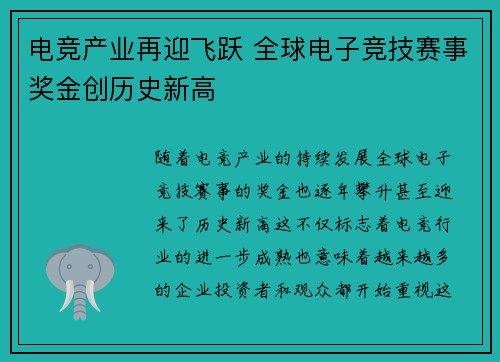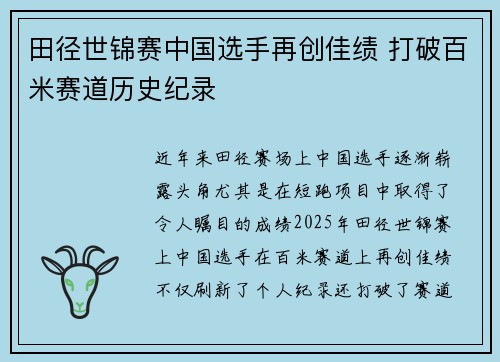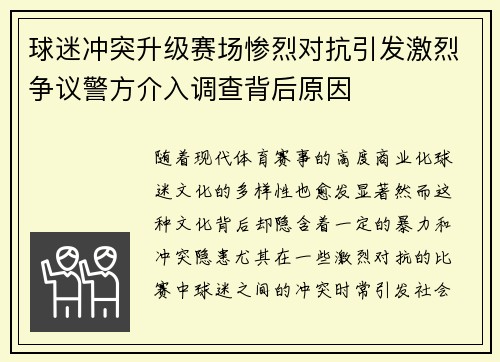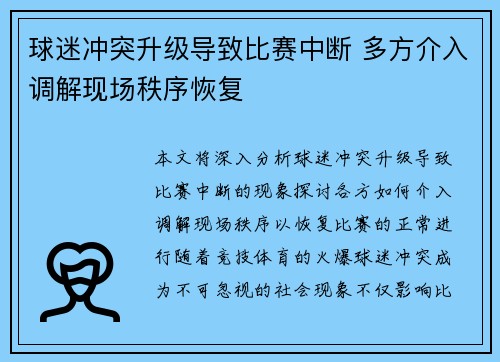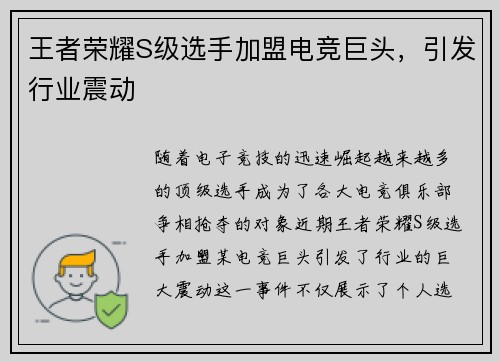裁判争议再起 VAR介入未能化解误判引发球迷热议
An article on controversies over referee decisions despite VAR intervention failing to resolve errors, sparking heated debates among football fans.
1、Introduction to Referee Controversies and VAR
Referee decisions in football have always been contentious, but the introduction of VAR (Video Assistant Referee) was expected to bring clarity and reduce errors. However, its implementation has often led to new debates and controversies rather than resolving them.
VAR's promise to eliminate blatant errors and ensure fairness has been met with mixed reactions from players, coaches, and fans alike. Despite its technological advancements, the human element in interpreting VAR remains a significant factor in its effectiveness.
Furthermore, the delays caused by VAR reviews and the subjective nature of some decisions have raised questions about whether it truly enhances the sport or complicates it further.
2、Impact on Match Dynamics
One of the key aspects of VAR controversies is its impact on the flow and dynamics of matches. The frequent interruptions for VAR reviews disrupt the natural rhythm of the game, often leaving players and spectators frustrated.
九游登录入口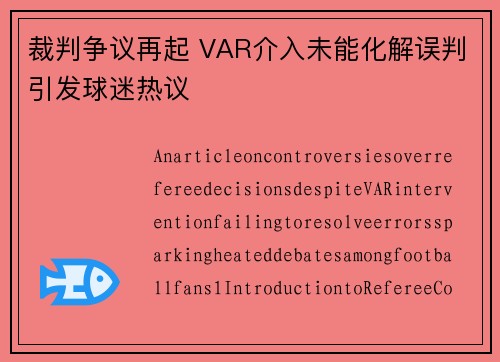
Moreover, the emotional rollercoaster experienced by fans when a decision is overturned or upheld after a VAR check can significantly influence the atmosphere in stadiums and the overall viewing experience.
These disruptions not only affect the players' concentration but also alter the tactical strategies employed by teams, leading to debates on whether the trade-off for accuracy is worth the interruption.
3、Subjectivity in VAR Interpretation
Despite its technological advancements, VAR's interpretation and application still rely on human judgment. The subjective nature of fouls, handballs, and offside decisions often leads to differing interpretations and subsequent controversies.
Referees, despite having access to multiple camera angles and slow-motion replays, may still interpret incidents differently, leading to inconsistencies in decision-making and further fueling debates among stakeholders.
Additionally, the criteria for VAR intervention vary across different football leagues and competitions, contributing to confusion and frustration among fans who expect consistency in officiating standards.
4、Public Perception and Trust Issues
The introduction of VAR aimed to enhance transparency and fairness in football officiating. However, its perceived effectiveness has been questioned by fans and pundits alike, leading to a crisis of trust in the refereeing system.
Public perception plays a crucial role in the acceptance and implementation of VAR. Instances where VAR fails to rectify clear errors or controversially intervenes in marginal decisions can erode trust in the system and undermine its credibility.
Furthermore, the lack of communication between match officials and spectators during VAR reviews often leaves fans in the dark, exacerbating frustration and contributing to the perception of a disconnect between football authorities and the public.
总结:
Despite its intentions to improve accuracy and fairness, VAR's implementation in football has sparked intense debates and controversies. Issues such as disruptions to match flow, subjective interpretations, and trust concerns have overshadowed its potential benefits. Moving forward, addressing these challenges is crucial to enhancing VAR's effectiveness and restoring confidence in football officiating.
While VAR has brought advancements in technology, its impact on the game's dynamics and public perception remains contentious. Resolving these issues will be pivotal in determining VAR's future role in football.


